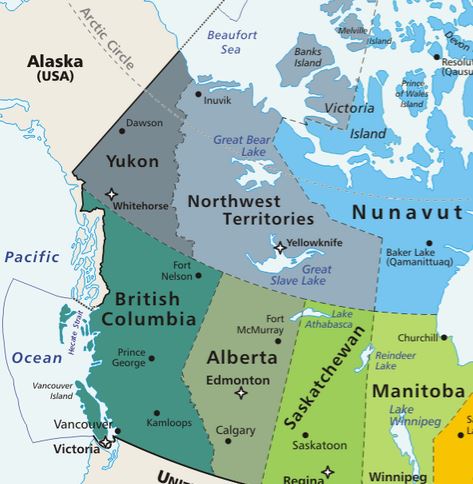The Senate Standing Committee on Transportation last night voted to defeat Bill C-48, the Oil Tanker Moratorium Act.
“Bill C-48 would do virtually nothing to address legitimate marine safety concerns of local communities regarding thousands of cruise ships, fueling and other types of vessels that traverse Northern British Columbia waters on an annual basis; it contains no measure to improve emergency marine response capacity,” the Canadian Association of Petroleum Producers said in a news release.
“Bill C-48 cannot, under international law, ban any vessel from passage in Canadian waters. This almost exclusively targets Canada’s energy sector and would block the possibility of export of Canadian petroleum products to international markets,” CAPP said.
“Lack of market access currently costs Canadian producers between $10.8 billion and $15.6 billion annually,” CAPP said.
CAPP President and CEO Tim MCMillan said, “The Government of Canada asked the Senate to review the proposed tanker moratorium and make recommendations in the best interests of this country. The Senate Committee responsible for the Bill has completed its work and delivered the message to government – kill Bill C-48.”

CAPP stats:
- Total capital investment in Canada’s oil and natural gas sector is forecast to drop to $37 billion in 2019 compared to $81 billion in 2014.
- Between 2014 and 2017 about 60,000 fewer people were employed in exploration and production, oil and natural gas, and oil sands construction across the country. Bill C-48 puts additional jobs, businesses, and communities at risk by putting an insurmountable barrier in the way of healthy economies.
- The Senate Standing Committee on Transportation and Communication travelled to Prince Rupert, Terrace, Edmonton and Regina to hear from Canadians on Bill C-48.
- CAPP’s members and associate members represent revenues from oil and natural gas production of about $101 billion a year.
Bill defeated in Senate, but not tanker ban not dead yet
From BNN/Bloomberg
OTTAWA — A federal ban on tanker traffic off British Columbia’s north coast has been defeated in a Senate committee.
On a 6-6 vote, the Senate’s transportation and communications committee rejected Bill C-48 Wednesday night.
The committee’s five Conservative senators voted against it, joined by Alberta independent Paula Simons.
Five other independents and one self-identified Liberal voted in favour.
When the result was clear — a tie vote means whatever is being proposed fails — the bill’s opponents applauded briefly in the Senate committee room.
The House of Commons passed the bill a week ago and its failure in a Senate committee doesn’t mean it’s dead, but the vote is a blow for Prime Minister Justin Trudeau and the Liberals.
Bill C-48 would put into a law a longstanding voluntary moratorium on coastal tanker traffic between the northern tip of Vancouver Island and the Alaska border, which is meant to protect delicate marine environments from potential spills.
More precisely, the bill would forbid tankers carrying more than 12,500 tonnes of oil from loading or unloading in the exclusion zone, either directly at ports or by using other ships as intermediaries.
Simons said late in the debate that she wasn’t confident that enough homework had been done to justify a permanent ban — that the bill would lock in a temporary measure based on limited research more than 40 years ago.
“I felt it was important as an Albertan, as a member on this committee, to come here with goodwill, to work towards amendments that would somehow strike a compromise where we could both protect one of Canada’s most extraordinary ecosystems while simultaneously not slamming the door in the face of the people of Alberta,” Simons said.
She might have backed a temporary legal restriction on tankers to allow further research, she said, but couldn’t support the bill as it stood.
Along with Bill C-69, which is meant to reform the federal assessment process for national-scale construction projects and is also in the Senate, Bill C-48 has enraged many backers of the Canadian oil industry, including Alberta Premier Jason Kenney.
“This is a victory for common sense & economic growth,” Kenney tweeted after the vote. “Thank-you to Senators for listening to Albertans & respecting fairness in our federation!”
Conservatives in the Senate said voting down the bill is a win for Canada’s energy industry, leaving open the possibility of exporting Canadian oil from northern B.C. ports.
The now-aborted Northern Gateway pipeline project, for instance, would have carried Alberta oil to Kitimat, B.C., in the no-tanker zone.
“This bill would only make the issue of landlocked Canadian oil worse,” said a statement from Sen. Larry Smith, the Conservative leader in the Senate.
The statement pointed out that Bill C-48 would forbid the transfer of oil onto or off ships in northern B.C. but wouldn’t stop tankers from passing through the area, impeding Canadian oil but not outlawing tanker traffic from Alaska.
The bill has divided First Nations. Some, such as the Nisga’a, see economic opportunity in pipelines. Others, including a nine-nation alliance of coastal First Nations, worry about irreversible damage to fisheries and nascent industries based on products such as essential oils from old-growth trees.







